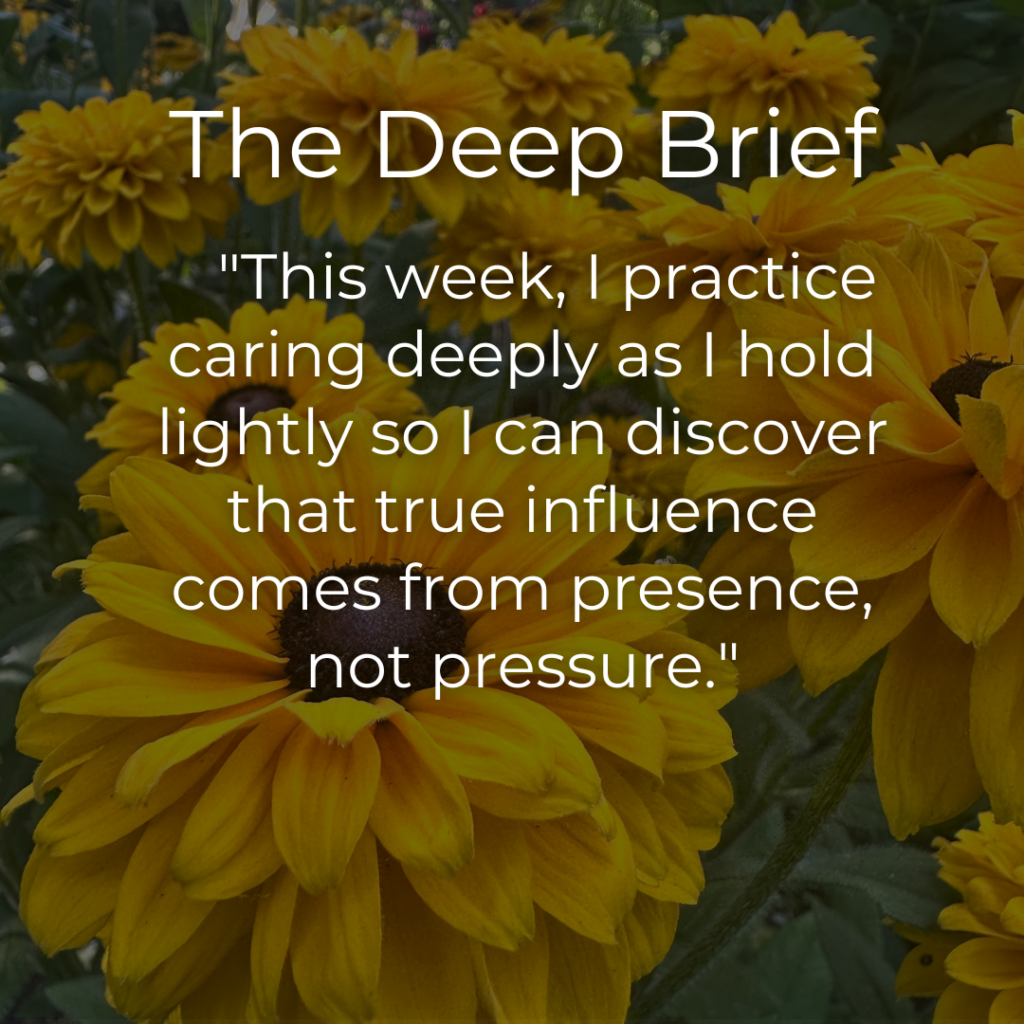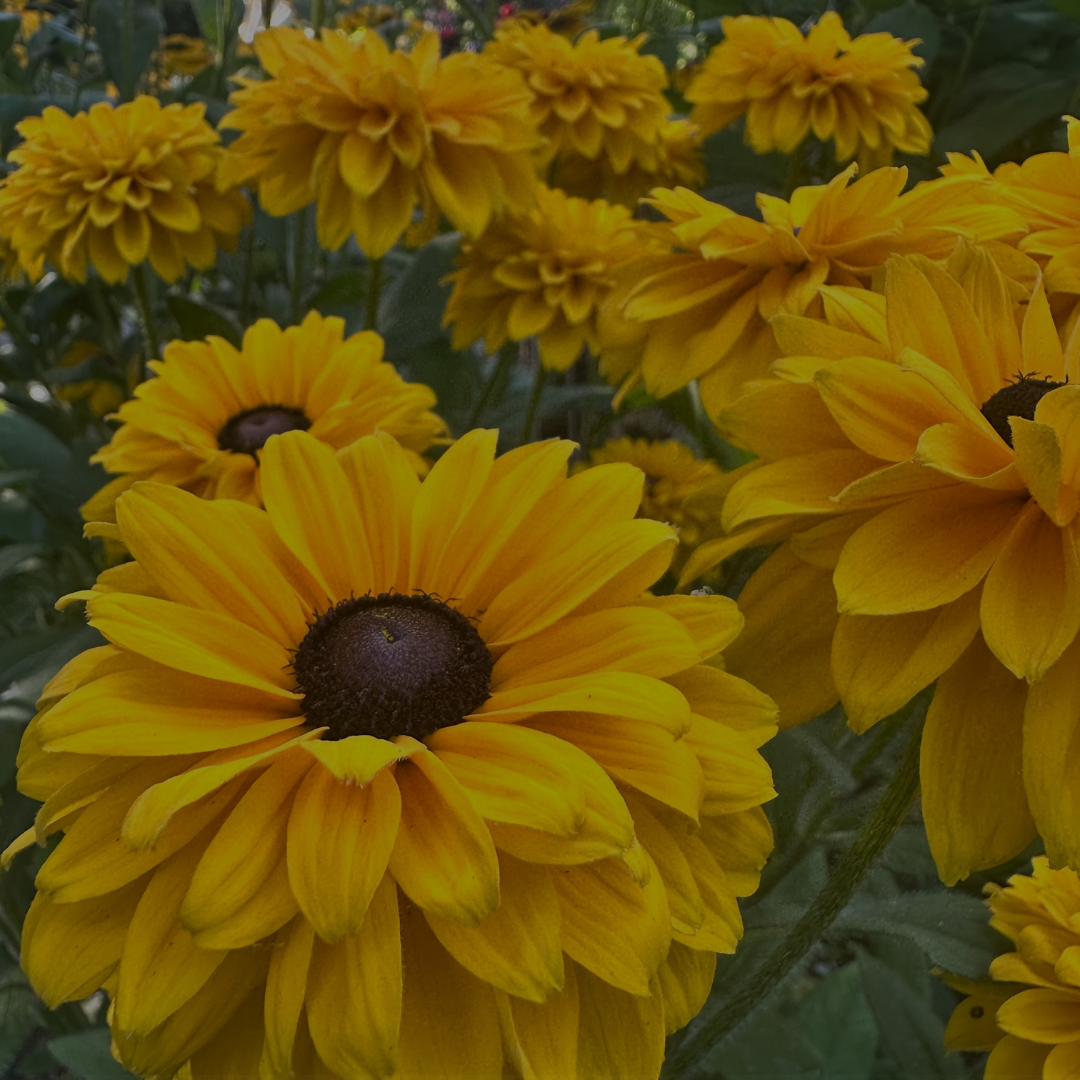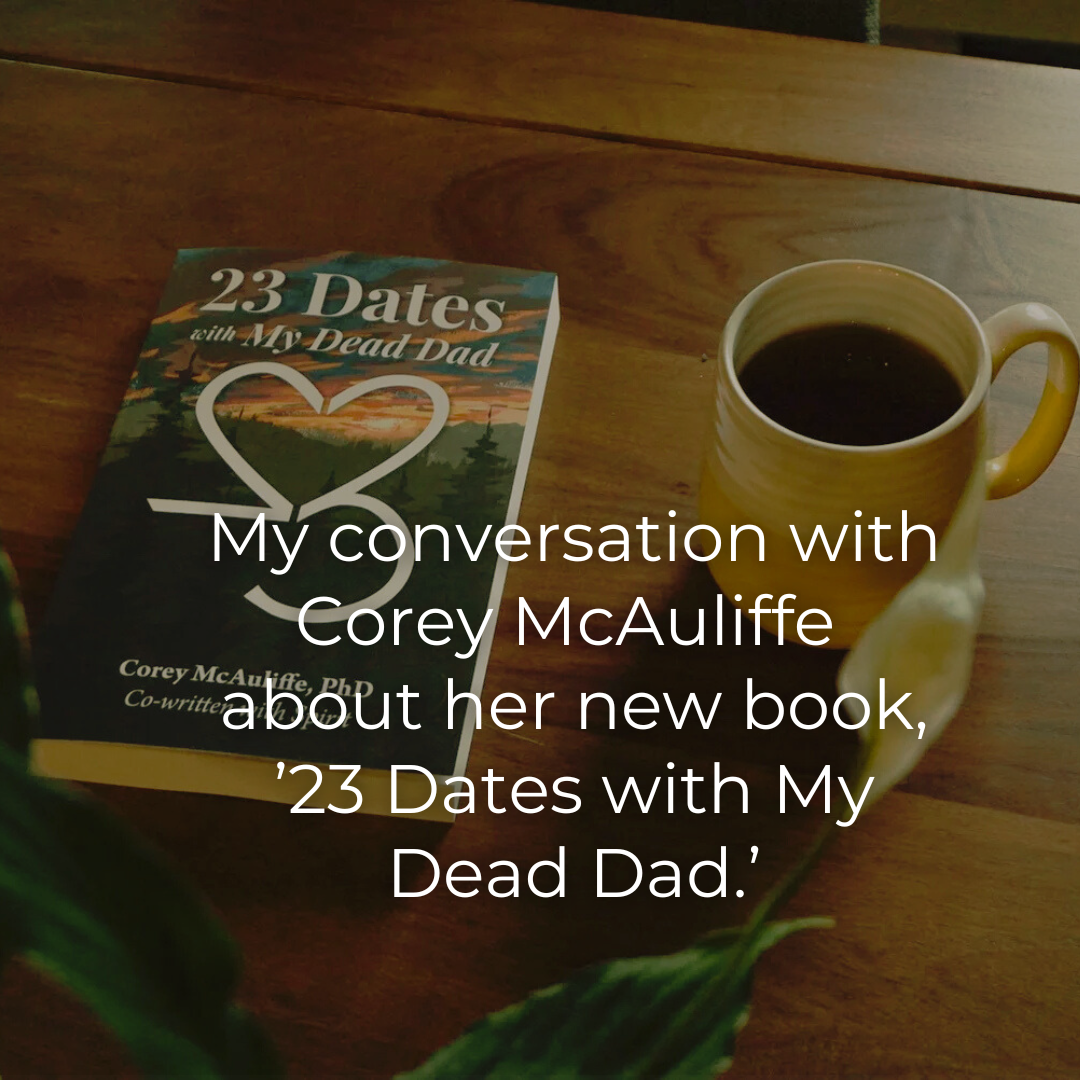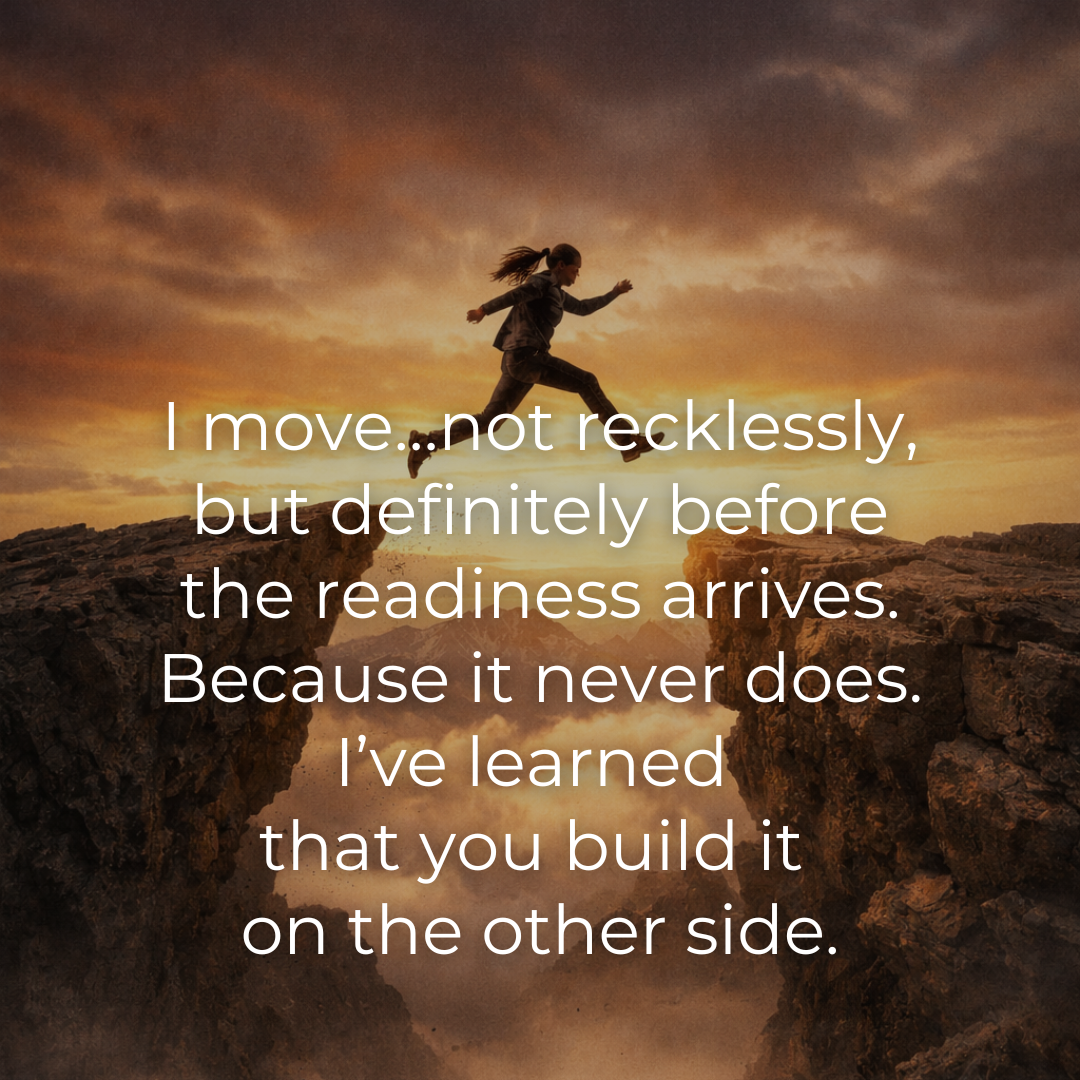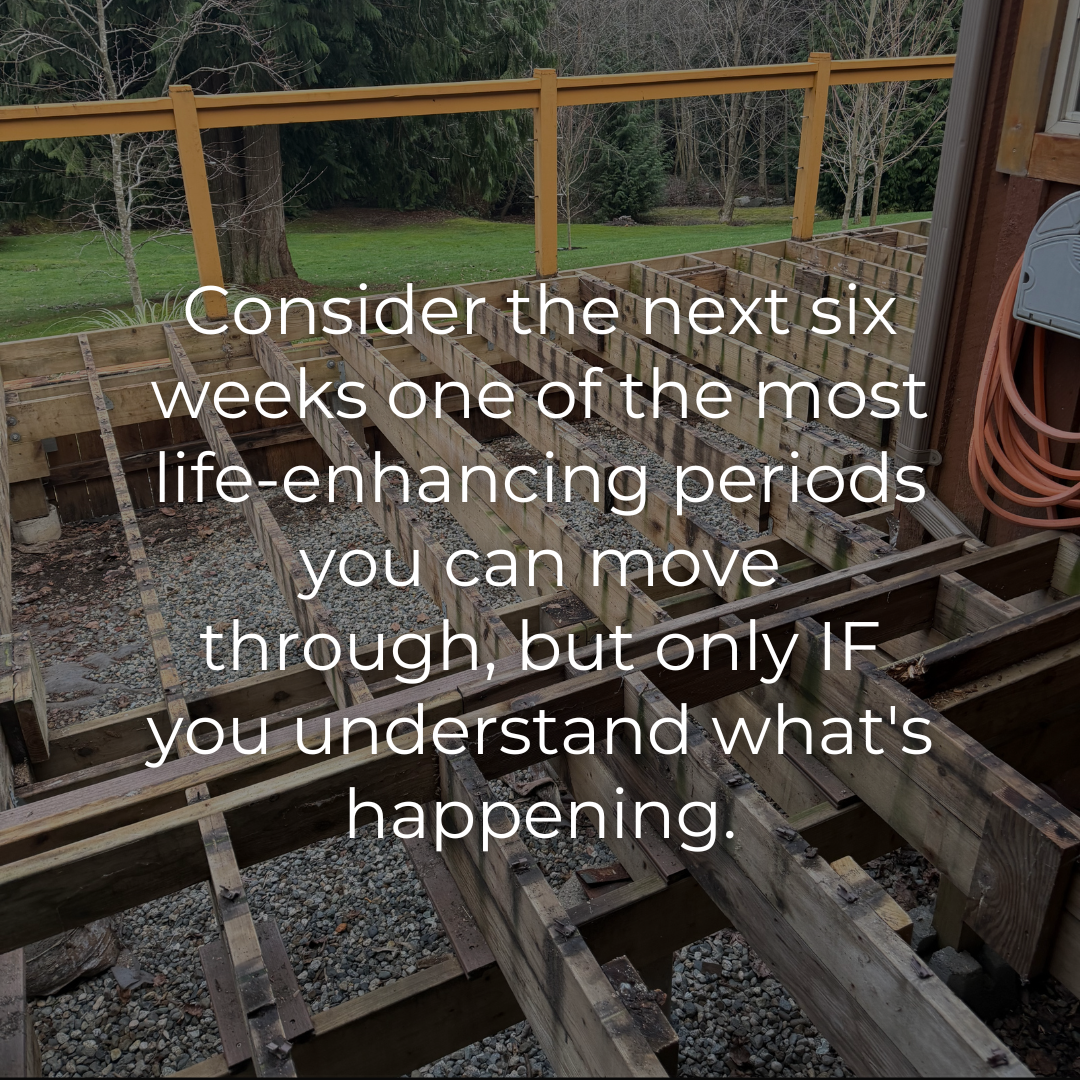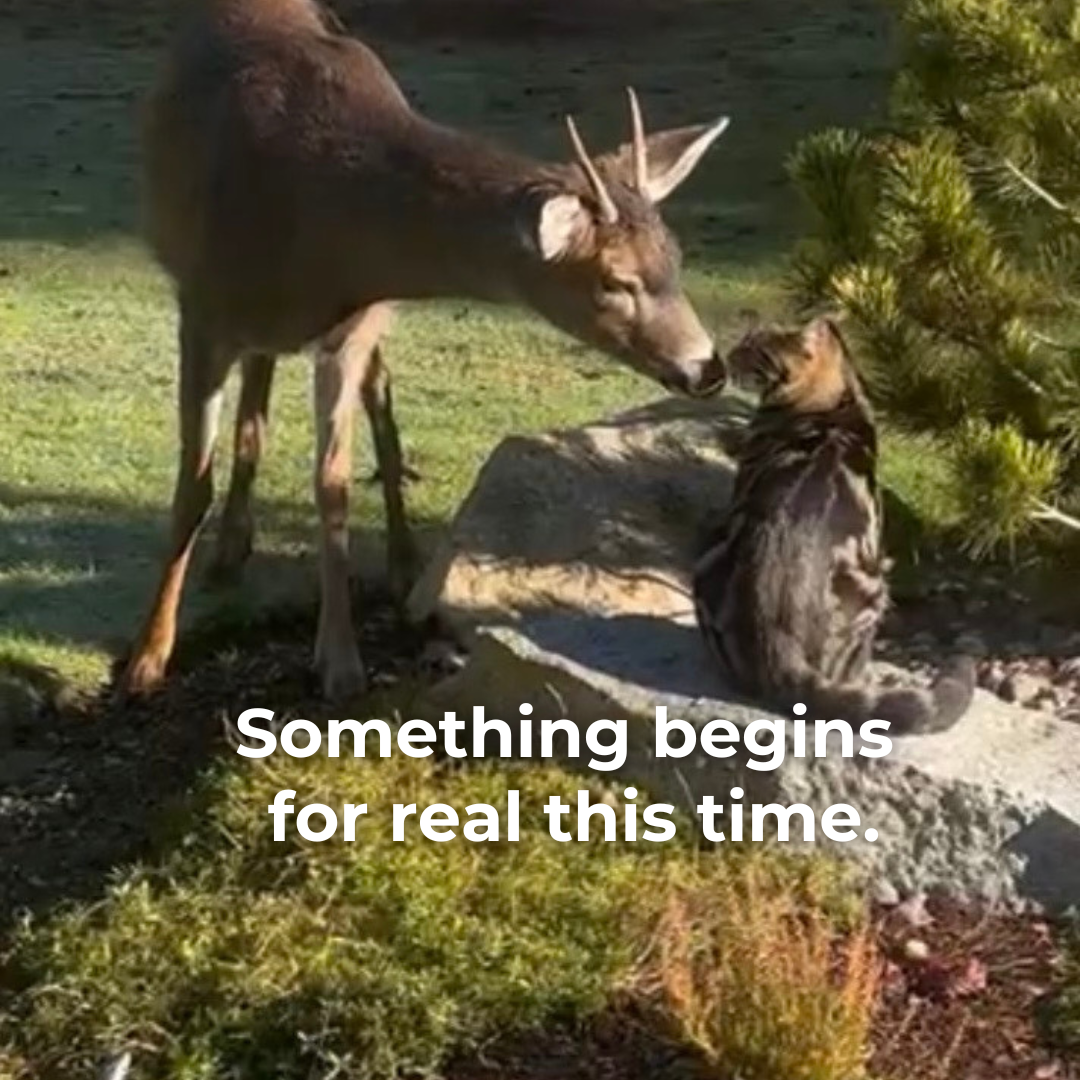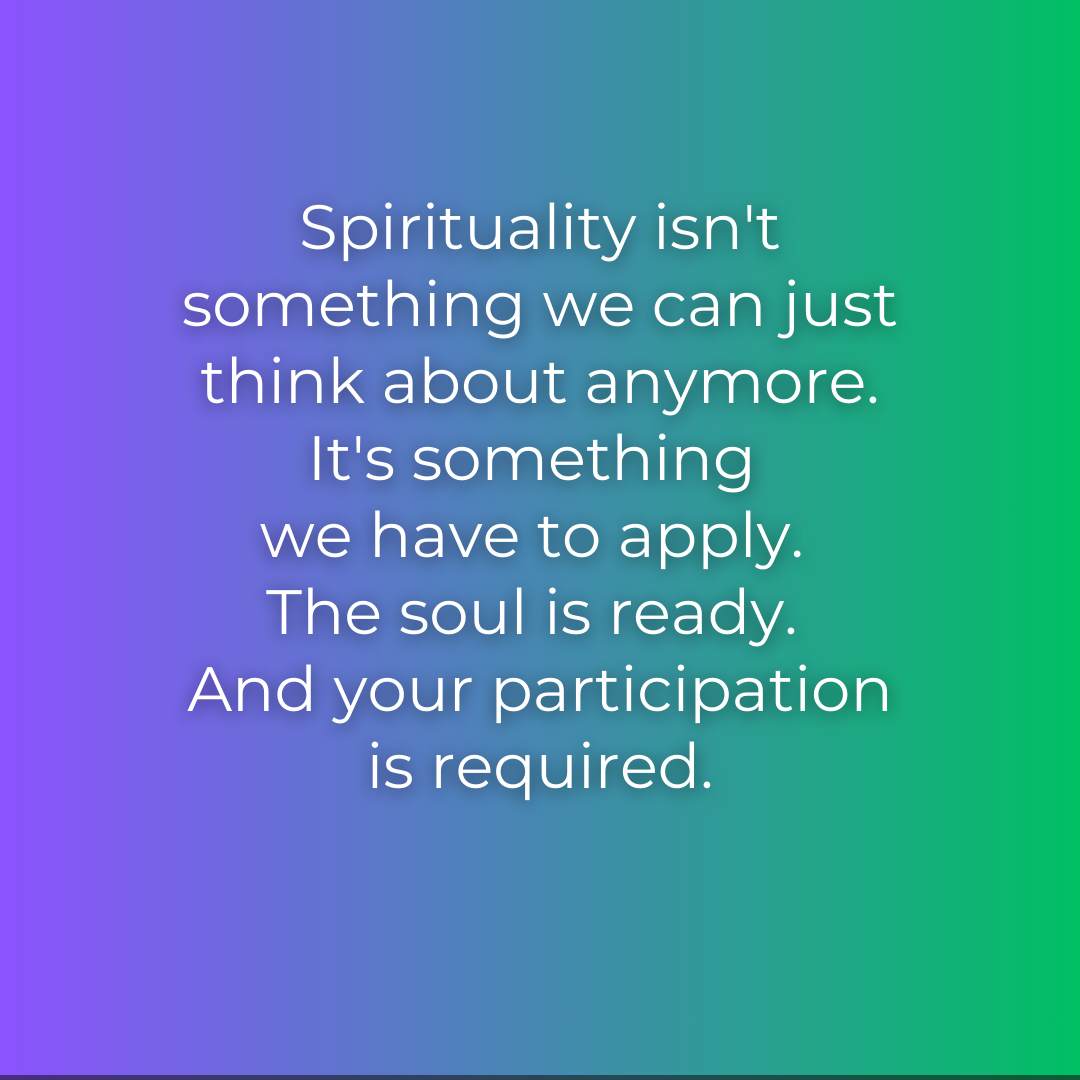THE DEEP BRIEF
Week of July 28, 2025
My flower gardens are having their annual exhibition right now. A riotous, shameless display that stops me mid-stride several times a day.
This morning I found myself standing mesmerized by a cluster of Black-Eyed Susan that seemed to pulse with their own inner light, when my husband appeared beside me, pruning secateurs in hand, already cataloguing what needed deadheading and transplanting for next year.
Same garden. Same flowers. Completely different universes.
I see intoxicating beauty that makes my chest tight with wonder. He sees maintenance schedules and strategic interventions. On top of that, our Indian Runner ducks waddle through, utterly indifferent to aesthetics or upkeep, laser-focused on the grub situation beneath the mulch.
Three beings, one garden, three entirely different relationships to the same miraculous reality.
This week, as we move through a cosmic recalibration that’s asking us to examine our relationship with outcomes, expectations, and the stories we tell ourselves about how things should happen, we’re getting a chance to take part in the subtle but significant difference between caring deeply and gripping tightly.
THE WEEK’S ENERGY
There’s a peculiar quality moving through the collective field right now, as though the universe is asking us to loosen our death grip on how we think our lives should look while also inviting us to care more, not less, about what actually matters. Not to become indifferent or to spiritually bypass our desires, but to distinguish between devotion and desperation. Between loving something enough to let it evolve and loving it so much you try to fossilize it exactly as it is.
Think of it as the difference between being a gardener and being a control enthusiast with plant-based anxiety. The gardener tends, waters, weeds, and then steps back to let growth happen in its own mysterious timing. The controller obsesses over every variable, measures daily progress, and panics when nature doesn’t follow the timeline they’ve imposed.
This week is asking which one are you being in your relationships, your creative projects, your career moves, your spiritual practice, your healing journey, all of it.
WHAT IT MIGHT FEEL LIKE
You might notice yourself ping-ponging between two extremes. One moment you’re micromanaging every detail of a situation, refreshing your email obsessively, checking and rechecking outcomes. The next moment you’re swinging into radical detachment, telling yourself you don’t care at all, which also doesn’t feel quite true.
There could be a hypervigilance around people’s responses to you, reading into text message response times, analyzing facial expressions in Zoom calls, or creating elaborate interpretations of why someone hasn’t called you back. Your nervous system might be treating normal human inconsistency as existential threat.
You might catch yourself hoarding moments instead of experiencing them. Taking photos of everything instead of looking directly. Mentally narrating experiences while they’re happening instead of dropping into the actual sensation of being alive. In other words, living in documentation mode rather than participation mode.
Some of you will notice attachment showing up as a kind of spiritual materialism, getting fixated on specific healing modalities, meditation techniques, or personal growth frameworks as if they’re magic bullets rather than tools. Or attaching to your “awakening” timeline, frustrated that you’re not enlightened faster.
Others might observe how attachment masquerades as caring in relationships. The difference between supporting someone’s growth and having an agenda for their growth. Between loving them and loving your idea of who they could become. You get it.
SOUL PERSPECTIVE
Right. Here’s what I’m sensing from the field:
Attachment is love filtered through fear.
Engagement is love filtered through trust.
Mic drop.
When we’re attached, we’re secretly convinced that if we don’t maintain constant surveillance and intervention, everything will fall apart. We’re operating from a scarcity-based assumption that life is fundamentally unreliable and that our vigilance is the only thing standing between us and catastrophe.
When we’re engaged, we’re participating wholeheartedly and remaining curious about what wants to come next. We’re investing our full presence and care without demanding specific returns on that investment. We’re showing up completely while holding outcomes lightly.
The paradox that this week is illuminating is that attachment actually diminishes our ability to influence outcomes because it constricts our range of response. When we’re gripping tightly to how we think things should go, we miss the subtle signals, the unexpected opportunities, and for sure the creative solutions that don’t match our preconceived blueprints.
Engagement, on the other hand, increases our responsive capacity. When we’re present without being possessive, we can pivot, adapt, and collaborate with reality as it happens rather than wrestling it into submission.
We don’t want to become a spiritual doormat or abandon our desires. But we DO want to upgrade from trying to control life to dancing with it. From demanding specific outcomes to creating conditions for flourishing and then stepping back to see what wants to grow.
HOW TO BE WITH IT
Start noticing the physical sensations of attachment versus engagement. Attachment usually feels tight, constricted, breathless, like you’re holding your breath waiting for life to prove it’s safe. Engagement feels expansive, curious, alive, like you’re breathing with rather than against the flow of circumstances.
Practice what I call “devoted detachment” in small, low-stakes situations first. For example, care deeply about the quality of attention you bring to cooking dinner, but don’t attach to whether everyone appreciates it. Invest fully in a conversation without needing it to go a certain direction. Create something beautiful without requiring specific recognition.
Get curious about your attachment patterns. Do you cling to people, outcomes, timelines, identities, spiritual concepts, or healing modalities? What are you afraid will happen if you loosen your grip? Usually our attachments are protecting us from old wounds around abandonment, rejection, or feeling out of control. Sigh.
You can create more strategic surrender moments throughout your day. How? Put your phone in another room during meals. And/or let someone else choose the restaurant. Take a different route to work. Practice micro-releases that build your tolerance for not controlling everything.
And remember, you can love something completely while releasing your agenda for how it should go. The deepest care looks like stepping back and creating space for authenticity rather than pushing for predetermined results.
YOUR WEEK IN ONE SENTENCE
“This week, I practice caring deeply as I hold lightly so I can discover that true influence comes from presence, not pressure.”
MINI PRACTICE FOR CONSCIOUS ENGAGEMENT
Choose one thing you’re currently attached to. Maybe it’s an outcome, a person’s response, a timeline, or a project result. Spend two minutes breathing into your heart space and silently offering this phrase: “I care about this completely AND I release my grip on how it all happens.” Notice what happens in your body when you say both parts. Then throughout the day, every time you catch yourself tightening around this thing, return to the breath and the phrase.By the end of the week, you’ll have practiced the art of devotion without desperation.
ANYWAY…
This week, when you feel the familiar urge to control, take a thoughtful breath and ask: “How can I care more and grip less?” When someone doesn’t respond the way you hoped, “What if their response is information, not rejection?” When things don’t happen according to your timeline, wonder: “What if this delay is protection I can’t see yet?”
Your deep caring is not the problem. It’s your tight gripping that creates suffering. Learn the difference, and you’ll discover that engagement without attachment is not only possible, it’s where your real power lives.
Trust the process. Tend the garden. And let the ducks find their own grubs.
Jonni
